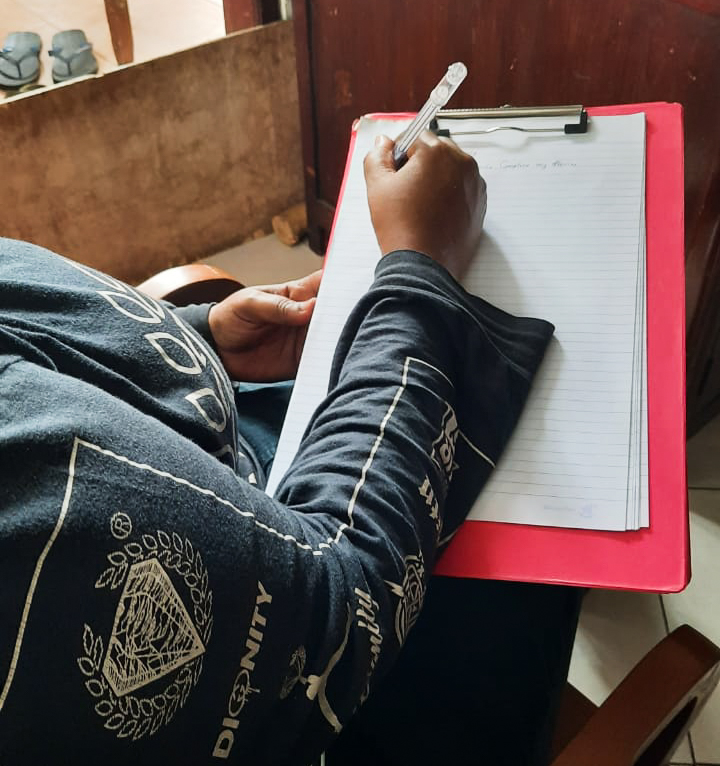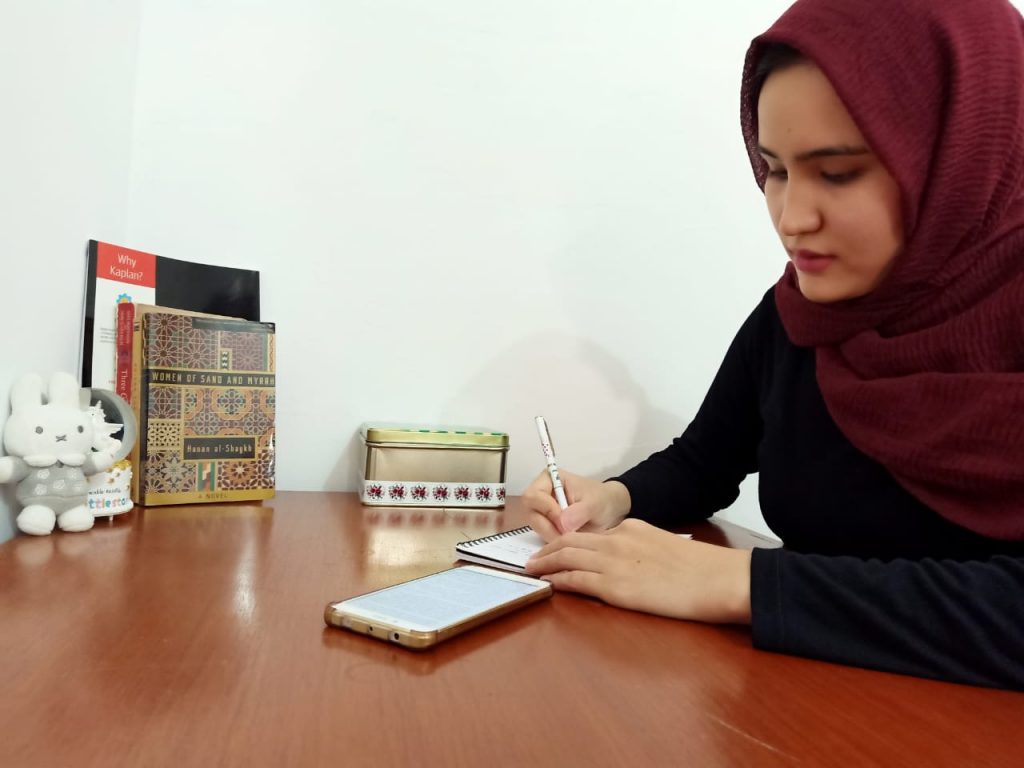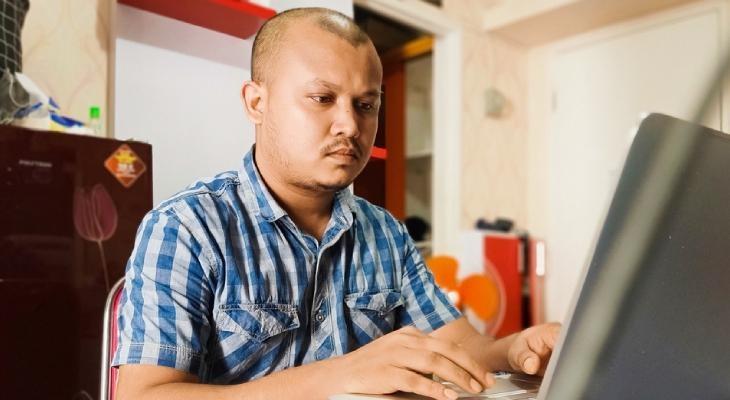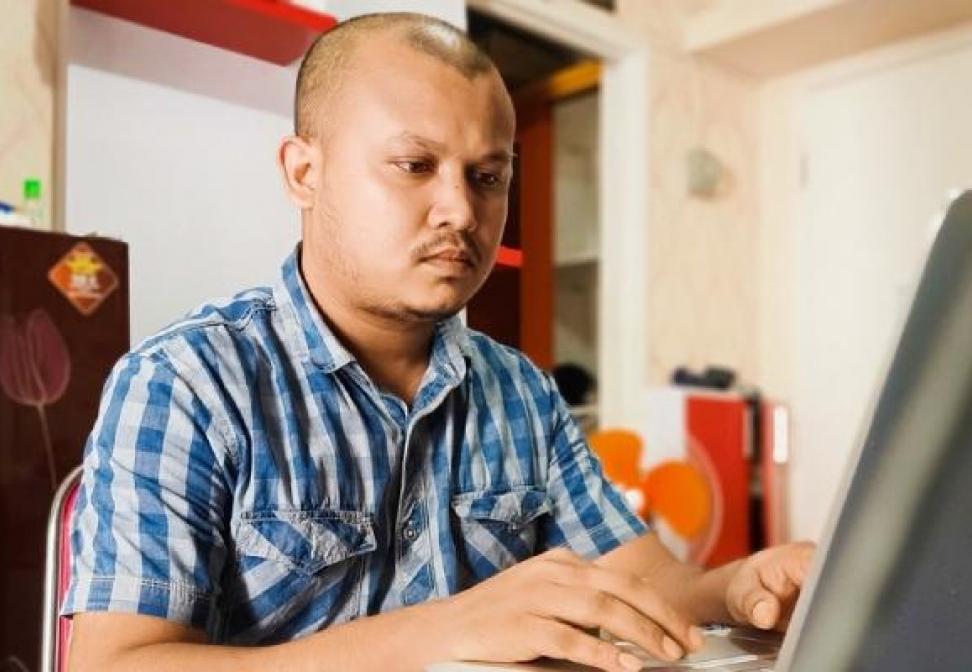Allies in Writing – Refugees Shaping Their Own Stories
Many refugee stories are not written by them. Kieren and Warsan started a collective of refugee writers and artists in Indonesia so they can tell their stories in their own words.
We are massive consumers of refugee stories. Articles, images, videos and reports about refugees fill our news feeds.
Yet almost none of these displacement narratives are created by writers and artists who are themselves refugees.
We set out to change this.
We built a writers collective within the refugee community in Indonesia. Many who are displaced and living without any legal rights lose motivation for their dreams because they struggle even to meet their basic needs. However, they dream of becoming writers, artists, photographers, journalists and public speakers.
When we first invited people to sign up for the collective, many were totally surprised by the opportunity to be nurtured and trained to write and publish their work while their lives are in limbo. Since our first writers workshop in October 2019, refugees have seized on the opportunity to hone their creative writing skills and speak their realities.

“As a writer, I show my experiences and realities for refugee girls going through life with non-stop stigma. I support myself and others who raise up our rights, voices and stories towards love and justice.” - Warsan Weedhsan, Somali writer
Our writers are from Somalia, Eritrea, Sudan, Afghanistan and Pakistan, and almost half of our group are women. As writers we are united, working to share our untold histories to a global audience.
Together we learn writing skills, share our experiences with each other, and develop our individual projects. Many of the writers work without laptops or computers, they write by texting on mobile phones.
So far, our writers have been published in Al Jazeera, Buzzfeed and other international media. As a new writer, the first time you see your writing published in an international media outlet is an unforgettable moment. It motivates us when we see our writing featured and we are able to help other refugees by raising awareness about the issues they face.
This month, we launched the archipelago, an online magazine to support our writers, build a readership around our work and open new conversations around migration, identity and decolonisation. We will publish new writing and art twice a month. We’ve also formed a non-profit organisation led by unpaid volunteers to raise funds that go directly to displaced writers and artists contributing to the site.
Many of the stories published in the archipelago today were drafted in October and were developed as writers gained new skills. Through this project, we give new writers hope that life is not lost in limbo, and motivate them to pursue creative work.
Black Lives Matter has exposed the global structures of racism and oppression, and points to the systemic change needed for Black, Indigenous and People of Colour around the world. This holds true for refugees, who have fled their homelands because of systemic oppression, genocide and war.
In particular, black refugees in Indonesia meet more discrimination and are more marginalised than lighter skinned individuals. This sometimes results in everyday acts of violence and name-calling on the street. We have made it our priority to find and support black writers who are refugees from East Africa to speak out against all forms of hatred and discrimination.
 “Since I joined the archipelago, I found a way to write better and share my ideas about the world. Now I can say to my homeland’s girls and girls around the world that we can do whatever we want and being underestimated by others cannot stop us.” - MA Raha, Hazara writer
“Since I joined the archipelago, I found a way to write better and share my ideas about the world. Now I can say to my homeland’s girls and girls around the world that we can do whatever we want and being underestimated by others cannot stop us.” - MA Raha, Hazara writerHow can you support refugees today? A starting point is to read and listen to writers, artists and activists who are refugees and let their work inform your actions.
More importantly, we need to direct funds to individuals and grassroots groups to enable them to take action. Too often, the financial and cultural capital gained from refugee activism goes to privileged spokespersons and large organisations who form part of hegemonic systems. Look for individuals and groups who are part of refugee communities and support them directly.
For our part, we are expanding our work to mentor and support creators who are refugees. We cannot do this without your support. We need your help to build up the archipelago and reach to more writers and artists. We call on you to read our writing, view our art, and become a member of the archipelago.
Support the archipelago by becoming a member, donating equipment or sponsoring their work. More information here.
(Thanks to the archipelago for all the photos featured on this blog post).
About the archipelago
the archipelago is a new online magazine that develops and showcases the creative work of refugee and migrant writers and artists. Writing for the organisation on this blog are Warsan Weedhsan, an African writer and co-director of the archipelago writers collective in Jakarta and Kieren Kresevic Salazar, a writer and founding editor of the archipelago.





